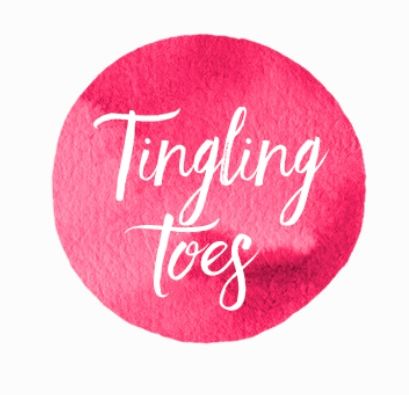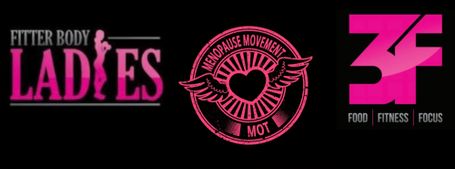
Tingling Toes
Static electric shocks, tingling extremities, and pins and needles may all be experienced and affect feet, legs, arms and hands. Grip may weaken, numb feet can cause problems with balance, pinched nerves or compressed joints can cause a burning sensation under your skin, or a feeling that limbs have unexpectedly gone to sleep. “She’s Electric”, sang Oasis, and women suffering from the uncommon perimenopause symptom, paraesthesia, might well agree.
WHY NOW?
Hormonal changes have a direct effect on our nervous system. When oestrogen levels fluctuate, messages between the nervous system and parts of the body can be misinterpreted, resulting in a prickly feeling under the skin. Falling oestrogen levels also affect collagen production, causing the skin to thin and reducing blood flow to nerves in the extremities. For some, static electric shock may be a forerunner to a hot flush and can occur at any moment. And the good news is…. These exasperating, tingling, numbing sensations, generally pass once you’ve gone through the menopause transition.
BE PROACTIVE
The best ways to deal with static shocks, pins and needles and tingling sensations. A healthy, balanced diet, good hydration, exercise and a decent night’s sleep will go a long way to dealing with the tingles.
What to eat to help with pins and needles
Foods that help to fight the tingles Supporting your body with appropriate nutrients and eating a balanced diet can help. Maybe you don’t have time always to cook from scratch, but try to incorporate some of these foods into your diet.
Omega-3 fatty acids Research from Queen Mary, University of London suggests it may have the potential to protect nerves from injury and help them to regenerate. Found in oily fish such as salmon, mackerel, sardines and kippers and in walnuts, milled linseed and pumpkin seeds.
Vitamin B deficiency may contribute to tingling. To up your intake of B1,5 and 12, eat more, oily fish, chia and sunflower seeds, mushrooms, and avocados.
Vitamin C – as our bodies don’t store this vitamin very well, we need some every day, include more fresh fruits such as strawberries, blackcurrants, oranges and orange juice, red and green peppers, broccoli and Brussels sprouts.
Vitamin E is a fat-soluble antioxidant found in avocados, tomatoes, sweet potatoes, squash, broccoli, spinach, watercress, Brussels sprouts, blackberries and mangoes
Phytoestrogens raise natural oestrogen levels in our bodies to help balance hormones. Found in soy beans, tofu, tempeh, miso soup, rye, milled golden linseed (flaxseed), sesame seeds, berries, oats, lentils, yams, alfalfa, pomegranates, apples and carrots
Magnesium helps maintain muscle and nerve function, and regulates our blood sugar levels and blood pressure. Eat soybeans, oatmeal, lentils, cashews, peanut butter, spinach and halibut.
Potassium helps regulate water retention. Avocados, spinach, sweet potatoes and water melon are some of the best sources.
Keep hydrated Dehydration can cause a sensation of pins and needles as sodium levels drop. As prevention is better than cure, try to drink between 6-8 glasses a day and choose from water, herbal teas, and fruit juices.
What to avoid to help with pins and needles
Saturated fats: a build-up of fats in your blood vessels can affect blood circulation in your hands and feet, causing tingling or pins and needles. UK guidelines say that the average woman should eat no more than 20g a day. Foods high in saturated fats include your go-to biscuits, cakes, pastries and savoury snacks. Check labels, using the traffic light system to ensure you’re not in the red zone. Eat lean meats, legumes, fruit and vegetables. Better to grill, steam or bake foods rather than frying. Cigarettes: Smoking decreases the levels of oestrogen which can impact on nerve receptors and constricts blood vessels which may cause tingles.
Caffeine: Excessive consumption may cause muscle spasm and tingling. If your sensitive to caffeine, try cutting it out to see if there’s any improvement.
Alcohol: has a negative effect on your nervous system, can cause nerve damage and may increase stress levels.
Lifestyle & wellbeing to help with pins and needles
Exercise those extremities Improve your blood flow and circulation by staying active and exercising regularly. Swimming, pilates, cycling or a brisk twenty-minute walk are perfect to increase your heart rate and improve circulation. Diet and exercise together can help fight off tingling and numbness in your extremities. If you have constant tingling, consult your doctor before increasing activity levels. Fight fatigue Fatigue may lead to muscle tension, affecting nerves and cause tingling, and pins and needles. Top up your energy tank; eat well, get on top of your sleep, stay hydrated, and exercise. Being tired increases feelings of anxiety and stress, which in turn increase fatigue. Yes, it’s regularly recommended, but there’s tons of research confirming that pilates and yoga help with relaxation and relieving stress. Check out our Hot Flush YouTube vlog – Yoga with Annie – Relaxation & Breathing Exercises.
Strike a pose Maintaining good posture will lesson pressure on nerves reducing the chance of numbness or tingling. Pilates and yoga are both great forms of exercise to benefit your posture and for helping to release pinched nerves. Alexander Technique helps you to change your ways so that you can improve your posture, look online to find a local instructor.
Make time for massage Massage can help with circulation to ease, or prevent tingling. You can massage your feet and hands using marjoram, or wild orange essential oil. Or try oils containing capsaicin, the chemical that gives chilli its heat, for a more intense effect, best when diluted with a carrier oil.
Cold hands and a warm bottle Hormone levels can affect circulation causing a drop in body temperature, so feet and hands get cold, triggering tingling. Keep a hot water bottle handy to warm up your feet and hands.
Supplements worth trying for pins and needles
Whilst a healthy diet full of omega-3, fruit, vegetables and wholegrains should give you all the nutrients you need, you can supplement your diet if needed.
B-vitamins may help support your nervous system.
Magnesium, found in most multi-vitamins, or taken as a supplement on its own, to support muscle and nerve function.
When to see your doctor about pins and needles
For women in perimenopause, paraesthesia is likely to be caused by hormonal imbalance, but it can be an indicator of other more serious issues. If you’re experiencing other symptoms talk to your doctor to work out the likely cause.
And then there’s always HRT…
For those women, whose health history means they’re able to take it, HRT brings hormones back in to balance, relieving hormone-induced tingling and the anxiety that can cause these sensations. Our usual caveat, there are pros and cons to taking HRT.
And we can help
Your Fbl Team x
© Copyright. All rights reserved.
